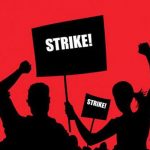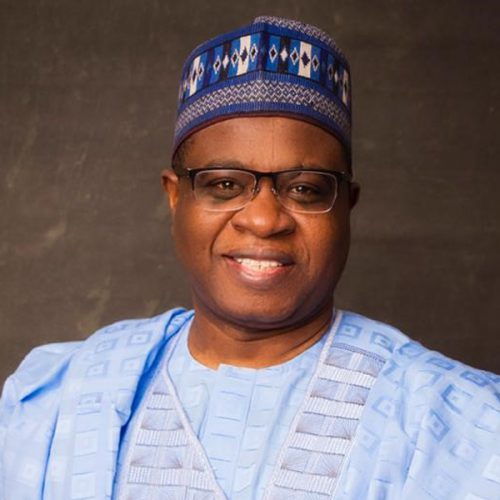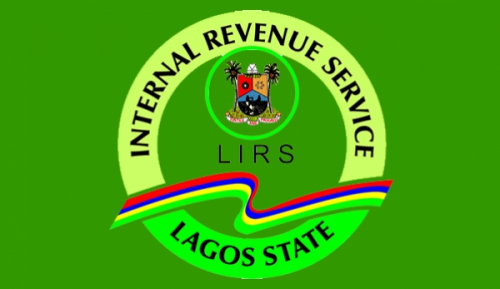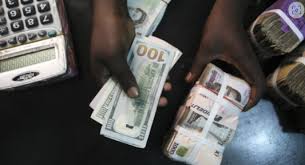Opinion: Fuel subsidy removal and the cruelty of governance

By Isaac Chii Nwaogwugwu
In what appears to be an apparent display of arrogance of power and insensitivity to the deplorable conditions of the citizenry the powers that be, on Wednesday, 2nd of September 2020 fired yet another canister of poisonous policy gas on the helpless people who were struggling to grasp with the real meaning of the ‘new regime of electricity tariff’ announced two days earlier.
The government, as usual doesn’t seem to make any sense out of the logic and reason of the consumers, analysts, protesters and labour groups who feel that the government is unkind, wicked, cruel, inhuman, intolerant, abusive, uncaring, mean,dictatorial, oppressive and demonic.
The state seems to think that those agitations are uncalled for and maybe, the protesters are being misled, incited by the enemies of the state who will not see anything good in the ‘wonderful’ works of the government.
After all the government is all-knowing and is in the best position to articulate the preferences of the people. So Nigerians should stop complaining for the president knows and has just done what is the best for Nigerians.
Subsidy has to go for good. This , certainly must be the line of reasoning of those who came up with the idea that the government must revisit the obnoxious subsidy policy at this most unauspicious time.
For them, subsidy removal has been designed to ensure that Nigerians enjoy the best that deregulation has to offer at this point in time.Interestingly. consumer subsidy as a basic economic concept implies a wedge between the cost of production and market price.
The term cost is as subjective and complex as any other term that varies with time, space, purpose and intent and is therefore subject to abuse.
Hence,both subsidy and cost may become toys in the hands of policy makers who can employ them as constructs of convenience in manipulating fiscal variables and outcome.
This explains why, time and again, the government keeps talking of deregulation through subsidy removal as sine qua non policy tonic that should excite our souls and beam our faces as the same is supposed to free market of all impediments and in the process equate cost, value and price.
In other words, the N162 you pay for a litter of petrol will reflect the full cost of production and distribution which translates into value for money.
Indeed that possibility exists but unfortunately can only be realised when the government itself does not exist as there is no market impediment as obstructive as the government.
Politics and government are major economic destabilisers. The government knows the truth.
They know the game they are playing with their neo-liberal western institutions especially the International Monetary Fund and the World Bank. Subsidy is quantifiable in its variability.
So, maybe, Nigerians have the right to know the cost of oil import and the subsidy on the same that warrants this surreptitious policy manipulation.
The truth of the matter is that we do not even know the volume of Petroleum Motor Spiriti mported into Nigeria each day.
We may not even know the origin and destination of the vessels that supposedly convey oil imports into Nigeria just like we may also not have an idea of all the agencies, companies and institutions importing them.
Yes, the operations and management of subsidy regimes in Nigeria is characterised by opaqueness and thereby making it difficult for the citizens to have a fairly good idea of the subsidy the government talks about let alone the magnitude of the same.
It is despicable that an oil producing country like Nigeria is a net importer of refined oil. Is it not shameful that we spend a big chunk of our cosmetic external reserve on the import of our naturally endowed resource?
For how long will the citizens continue to bear the brunt of mismanagement and visionless leadership?
Free market ideology which the government brandishes as the guiding doctrine of its economic policy requires that all agents of distortion should be rendered ineffective in an attempt to achieve vibrancy of economic growth and development.
But subsidy is not the only agent of market distortion. Taxes are too, just like the numerous regulatory measures that have made the cost of doing business in the country a major obstacle for national development.
So if we must remove subsidies to unleash growth and development, then we must also reduce taxes and lower our regulations.
As policy ingredients, there is absolutely no difference between a one naira subsidy and one naira tax. Their effects on the economy are exactly the same. They both depress economic growth.
After all, subsidies are simply negative taxes. A government that imposes all manner of taxes while pretending to be removing subsidies simply shows its ignorance on the wedge between cost and price.
Maybe one should ask, are there really economies where different regimes of subsidy do not exist? There is hardly any.
There are consumption and production subsidies in USA, UK, Denmark, Sweden, Germany, France, Australia, India, China and Japan. We should therefore, be becautions in making subsidy removal a major issue in our policy design.
Buhari’s assertion that the consequences of not discarding subsidy for PMS prices would mean a return to the costly subsidy regime with the potential return of fuel queues appears more like a threat from a government that should be appealing to its citizens for ineptitude,polarisation of poverty, divisive politics and policies as well as gross mismanagement of the nation’s resources.
Is he really sensitive to the plight of Nigerians as he claimed or making mockery of their sunk welfare state?
It appears that the government of this regime is working with a template that has been designed to suffocate the highly incapacitated average Nigerian and possibly snatch whatever life that is left in him.
As one of the protesting groups aptly captured it, ‘‘….condemnation in words alone will not be enough, especially for an obdurately antipoor capitalist regime which has made it clear to everyone it is desperate at offloading economic catastrophe on the heads of working class and poor Nigerians.’’
Poverty has become endemic, unemployment has risen to an all-time high of over thirty per cent, exchange rate has deteriorated badly mounting pressure on the cost of imported raw materials, consumer durables and food.
Inflation rate is already bracing a panicky digit of 15per cent or more depending on the basket of measurement and source of information.
Income has already fallen drastically with many on the ‘disguised’ status of employment as their contribution to economic growth is either zero or negative as their pay plummets to 50 per cent and further down to 25 per cent in some cases.
The rate of economic contraction has even surpassed government’s own estimate of 3.4 per cent. It is now 6.10 per cent making it extremely difficult for the economy and citizens to boast of a good mix of goods and services in addition to other tragic fallouts of the decline.
Double and multiple taxation have become an evil Nigerians must contend and live with even as the government increased the rate of Value Added Tax and is aggressively exploring other frontiers of taxation even where and when fiscal capacity does not exist.
The minimum wage has not been implemented in most states of the federation while the entire exercise has been ridiculed by controversy in the states as well as federal level where it has been implemented. Essentially therefore most Nigerians workers are still placed on the old minimum wage of N18,000 only.
Meanwhile, virtually all the households in the country render to themselves the services of a municipal agency.
They pump their own water, collect and clear their own wastes, generate their own power, attend to their own primary and secondary health care issues, carter for the school needs of their children among other things.
READ ALSO: NLC threatens to tackle infractions on workers’ rights
And these are the same citizens that are struggling to cope with the devastating effects of the dreaded Corona virus as the so-called palliatives became another programme for the boys.
This is the circumstance under which the government has just increased the pump price of Premium Motor Spirit. This is wickedness. This is absurd.
This is cruelty of governance. The government should therefore, find a way to reverse this bitter policy tonic unless it prefers to remain a permanent enemy of the people.










